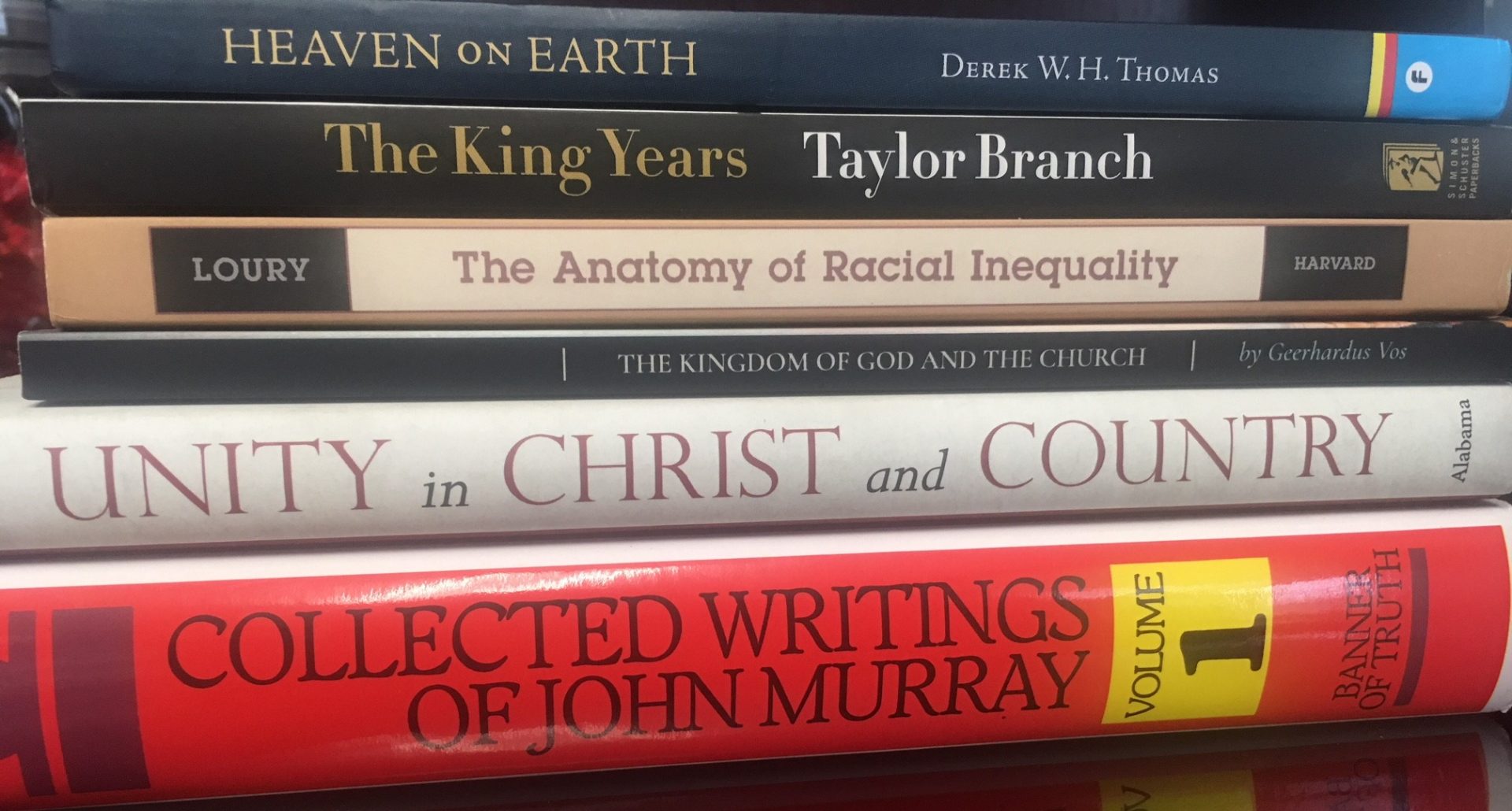It’s always nice to sit down and write up my Book Briefs post, because it means I’ve been reading! Maybe you’ll find something helpful in this list of recent reads.
Derek W. H. Thomas, Heaven on Earth: What the Bible Teaches about Life to Come (Christian Focus, 2018). What is heaven like? What happens when I die? What takes places at the end of human history? Derek makes for a terrific guide in examining these questions. A quick and edifying read.
Taylor Branch, The King Years: Historic Moments in the Civil Rights Movement (Simon and Schuster, 2013). Branch’s trilogy on American in the King Years is magisterial. It’s also massive. Enter this 200-page paperback, which is a Reader’s Digest version of the larger three volumes. You’ll find excerpts (with some new material) on all the major events, from the Montgomery Bus Boycott to Bloody Sunday to the March on Washington to King’s assassination in Memphis. Not a bad place to start if you want to brush up on your history before the MLK events this spring.
Glenn Loury, The Anatomy of Racial Inequality (Harvard University Press, 2002). This book—which Loury calls “a meditation on the problem of racial inequality in the United States, focusing specifically on the case of African Americans”—emerged from the W. E. B. Du Bois Lectures delivered at Harvard in 2000. Although the book needs an editor and suffers from opaque academic jargon, the three axioms Loury sets out to defend are well worth considering. Loury argues for the explanatory power of “constructivism” (race is a social convention with no justification in biological taxonomy), “anti-essentialism” (the social disadvantage of African Americans is not owing to differing innate human capacities), and “ingrained racial stigma” (given our national history, the otherness of Blacks is deeply entrenched and exercises a profound negative affect on African Americans). On this last point, Loury argues that while we must address how people are treated (discrimination), the more persistent problem has to do with who Blacks are understood to be (stigma).
Geerhardus Vos, The Teaching of Jesus Concerning the Kingdom of God and the Church (Fontes Press, 2017). At less than 100 pages, this is a great introduction not only to Vos but also to the doctrine of the kingdom. Vos is especially helpful in explaining the objective nature of the kingdom and its relationship to the church. The new introduction by Danny Olinger is also quite useful.
William Harrison Taylor, Unity in Christ and Country: American Presbyterians in the Revolutionary Era, 1758-1801 (University of Alabama Press, 2017). In this book, Taylor (an associate professor of history at Alabama State University) argues that Presbyterians in America had an interdenominational bent that began to fall apart on the other side of the Revolution. While I wasn’t convinced by every argument in the book, the overarching case is certainly a strong one: colonial Presbyterians dreamed of a unified Christian nation that would benefit America and the world.
John Murray, Collected Writings of John Murray, Volume 1: The Claims of Truth (Banner of Truth, 1976). In this collection of lectures, addresses, and sermons, Murray shows himself to be that rarest of birds: a first-rate academic who could communicate clearly. These 49 chapters on everything from Christology to the Sabbath to evangelism to Calvin to war to Christian education can be read profitably as history, as theology, or as devotional edification.
